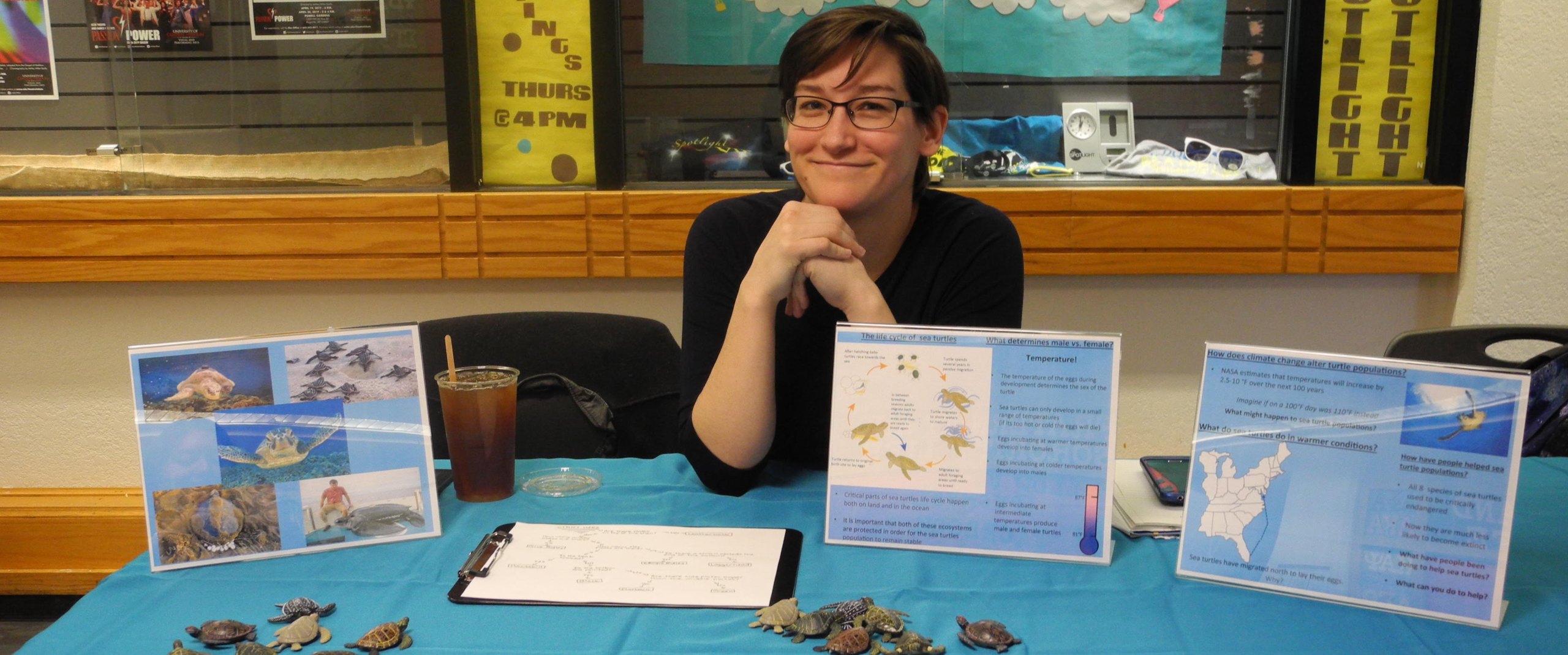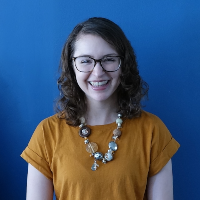Laurie Luckritz grew up in a religious household where she was taught not to believe in evolution—which makes the fact that she is now a graduate student in biology at the University of Central Missouri all the more noteworthy. She is one of six graduate students who make up our first cohort of Graduate Student Outreach Fellows seeking to improve their science communication skills in the service of community outreach. The Fellowship provides a framework in which Fellows can improve their skills by practicing engagement techniques, participating in outreach events, developing curriculum, and conducting informal science research. I had the opportunity to catch up with her recently and asked her a few questions about her work connected to NCSE.
How did you become involved in the NCSE Graduate Student Outreach Fellowship program?
I became interested in NCSE through my passion for studying evolution. I wanted to grow a program in my community where I could talk about evolution with others and I stumbled upon NCSE and realized that it does exactly what I love. Learning how to reach my audience and getting engaged with them is exactly what the Graduate Fellowship helps me do, and it’s a great experience.
Do you recall the moment when you knew you wanted to pursue science outreach?
Yes! I know the exact moment! I was finishing my undergraduate degree in anthropology at the time and we were learning about macroevolution. At the time, I was still reluctant to accept it since it wasn’t what I was raised to believe. I had been bothered about the concept of macroevolution ever since I learned about it. I went to my professor’s office after class and talked with her about it. We talked about how macroevolution can occur on the bacterial level in a matter of days. It clicked in that moment and I remember getting goose bumps.
Can you describe what you do in the Fellowship, and how you hope to grow through your involvement in the program?
In the Fellowship, I recruit volunteers for our events, increase my local affiliate’s social media presence, and build activity kits. Kate Carter [NCSE Director of Community Science Outreach] has helped me develop my grant-writing abilities, giving me insight on funding in a way I’ve never been exposed to before. We just learned about identifying our audience—having that aspect of public relations is crucial for obtaining volunteers and participants. I’ve wanted to get real-world experience and outreach opportunities, but most importantly grow beyond the scope of what I’m used to, and this fellowship helps with all of that and more!
Why is science communication important to your community?
In my educational experiences, I’ve learned all kinds of things about science, but science communication is a totally different aspect that I’ve never encountered before. I find that science communication in my area is unheard of and we’re sought out by other non-profits because we’re the only ones doing what we’re doing.


